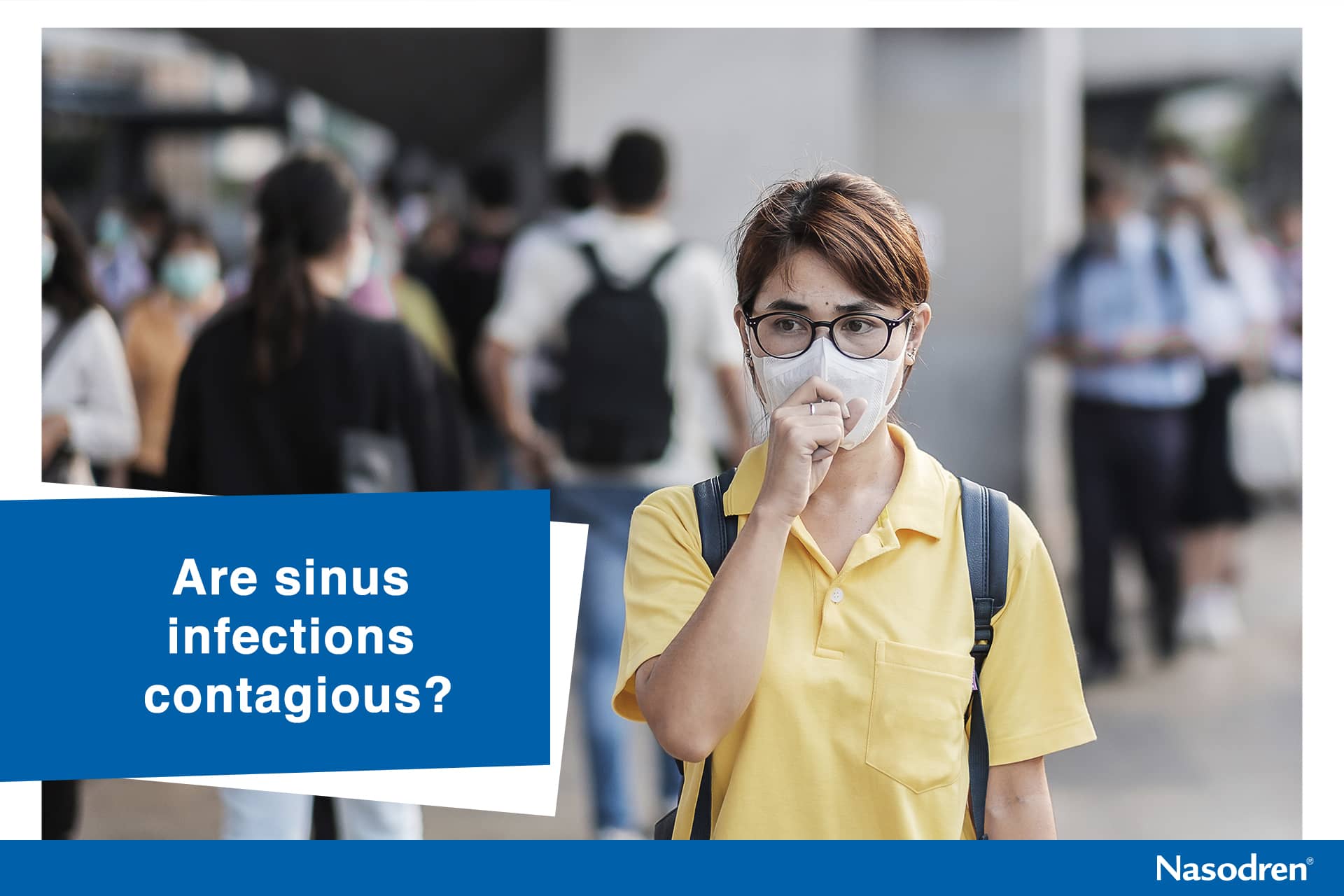If you have ever had a sinus infection or know some ‘sinus sufferer’, you may be aware of what this condition entails: a wide range of unpleasant symptoms including nasal blockage, mucus discharge, facial pain and post-nasal drip. Considering the effects of this disease on the patients, you might wonder whether sinusitis can actually be spread from one person to another, and this is such a legit concern. Do you want to find out more about it? Then, read on!
For a start, let’s not forget that sinus infections are triggered by different causes such as viruses, bacteria, allergies, fungi or structural abnormalities of the nose. Just to be clear, sinusitis (an infection of the paranasal sinuses or the inflammation of the mucous membrane that lines such hollow cavities) isn’t contagious by itself. Yet, depending on what the source of the problem is, you could be at risk of developing a sinus infection when being exposed to it.
When can this happen? As you may expect, only when the infection results from a virus… or to put it plainly, when the ‘common cold’ says ‘hi!’. Indeed, if you have a virus and you pass it to another individual, he or she can develop a cold that, in turn, could give rise to a sinus infection. When a cold worsens past the fifth day of the disease or lasts more than 10 days, we can already talk about a sinus infection. This is the only way through which you could get sinusitis by ‘contagion’, though we must pinpoint that it shouldn’t be stated this way. Let’s say that we are first infected with a virus, and then this can prompt sinus issues.
Once you’ve got a sinus infection, the best way to fight it off is by draining the mucus retained in the sinuses, which accounts for most of the symptoms that you may struggle with. Such thick mucus trapped in the sinuses exerts pressure, and that causes facial pain and headaches among other problems.
Prevention, always prevention
Is there any way to avoid ‘catching’ a sinus infection? The only thing you can do is to take action in order to lower your odds of getting a virus. How? By following some preventive measures like these:
– Wash your hands a lot with soap and water to kill the germs. Bringing hand sanitizer with you and using it regularly can also keep you from becoming sick.
– Limit your contact with people who are ill. Obviously, it’s not a matter of rejecting them, but being a bit cautious during such interactions. For instance, avoid shaking hands with people who have a cold or flu, or if you do so, wash your hands properly afterwards. As long as it’s possible, stay at a decent distance from the sick ones to avoid breathing in air droplets that can carry the virus.
– Avoid touching your nose and your eyes as much as you can. These are the most common routes of infection.
– Get enough sleep. Sleeping a decent amount of hours is key to keep our immune system at peak performance.
– Make exercise a habit, which will strengthen your body’s immune response as well. That, of course, should go hand in hand with a balanced diet.
In the end, it all comes down to having both a proper diagnosis and the right treatment, especially to stop common illnesses from turning into something worse… yes, like sinusitis!
Nasodren is 100% natural, with no rebound efect
Effectively reduces nasal congestion
Buy now HERE







